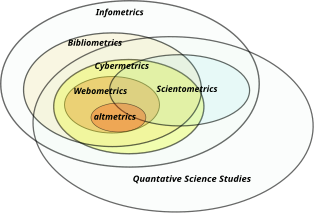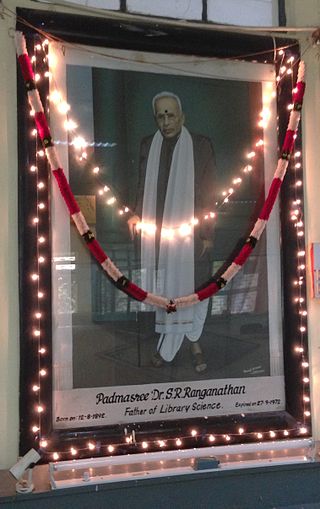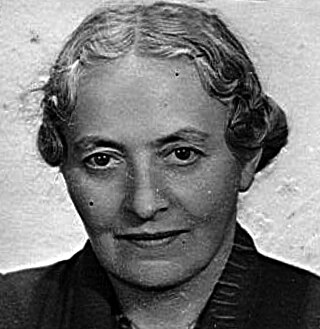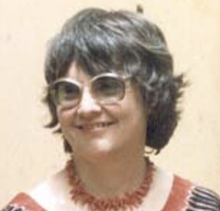Related Research Articles

Information science or informatology is an academic field which is primarily concerned with analysis, collection, classification, manipulation, storage, retrieval, movement, dissemination, and protection of information. Practitioners within and outside the field study the application and the usage of knowledge in organizations in addition to the interaction between people, organizations, and any existing information systems with the aim of creating, replacing, improving, or understanding the information systems.

Shiyali Ramamrita Ranganathan was a librarian and mathematician from India. His most notable contributions to the field were his five laws of library science and the development of the first major faceted classification system, the colon classification. He is considered to be the father of library science, documentation, and information science in India and is widely known throughout the rest of the world for his fundamental thinking in the field. His birthday is observed every year as the National Librarian Day in India.
Michael Gorman is a British-born librarian, library scholar and editor/writer on library issues noted for his traditional views. During his tenure as president of the American Library Association (ALA), he was vocal in his opinions on a range of subjects, notably technology and education. He currently lives in the Chicago area with his wife, Anne Reuland, an academic administrator at Loyola University.
Michael Keeble Buckland is an emeritus professor at the UC Berkeley School of Information and co-director of the Electronic Cultural Atlas Initiative.

The following outline is provided as an overview of and topical guide to library and information science:

Jesse Hauk Shera was an American librarian and information scientist who pioneered the use of information technology in libraries and played a role in the expansion of its use in other areas throughout the 1950s, 60s, and 70s.
Education for librarianship, including for paraprofessional library workers, varies around the world, and has changed over time. In recent decades, many institutions offering librarianship education have changed their names to reflect the shift from print media to electronic media, and to information contained outside of traditional libraries. Some call themselves schools of library and information science, or have dropped the word "library" altogether.
Music librarianship is the area of librarianship that pertains to music collections and their development, cataloging, preservation and maintenance, as well as reference issues connected with musical works and music literature. Music librarians often have degrees in both music and librarianship. Music librarians deal with standard librarianship duties such as cataloging and reference, which become more complicated when music scores and recordings are involved. Therefore, music librarians generally read music and have at least a basic understanding of both music theory and music history to aid in their duties.

Library and information science (LIS) are two interconnected disciplines that deal with the organization, access, collection, and regulation of information, both in physical and digital forms.
The following outline is provided as an overview of and topical guide to information science:

Renée-Marie-Hélène-Suzanne Briet, known as "Madame Documentation," was a librarian, author, historian, poet, and visionary best known for her treatise Qu'est-ce que la documentation?, a foundational text in the modern study of information science. She is also known for her writings on the history of Ardennes and the poet Arthur Rimbaud.

Peter Johan Lor was Secretary General of the International Federation of Library Associations and Institutions, first National Librarian and Chief Executive Officer of the National Library of South Africa, a scholar of international librarianship, and a professor of librarianship.
The World Congress of Universal Documentation was held from 16 to 21 August 1937 in Paris, France. Delegates from 45 countries met to discuss means by which all of the world's information, in print, in manuscript, and in other forms, could be efficiently organized and made accessible.

Documentation science is the study of the recording and retrieval of information. Documentation science gradually developed into the broader field of information science.
A library and information scientist, also known as a library scholar, is a researcher or academic who specializes in the field of library and information science and often participates in scholarly writing about and related to library and information science. A library and information scientist is neither limited to any one subfield of library and information science nor any one particular type of library. These scientists come from all information-related sectors including library and book history.
Library history is a subdiscipline within library science and library and information science focusing on the history of libraries and their role in societies and cultures. Some see the field as a subset of information history. Library history is an academic discipline and should not be confused with its object of study : the discipline is much younger than the libraries it studies. Library history begins in ancient societies through contemporary issues facing libraries today. Topics include recording mediums, cataloguing systems, scholars, scribes, library supporters and librarians.
Jack Mills was a British librarian and classification researcher, who worked for more than sixty years in the study, teaching, development and promotion of library classification and information retrieval, principally as a major figure in the British school of facet analysis which builds on the traditions of Henry E. Bliss and S.R. Ranganathan.
The Department of Information Studies is a department of the UCL Faculty of Arts and Humanities.

Mary Niles Maack was an American librarian and scholar known for her work on comparative librarianship and the history of the book.
References
- ↑ Day, R. (n.d.) retrieved from http://info.slis.indiana.edu/~roday/
- ↑ Day, R. & Pyati, A. (2005).We Must Now All Be Information Professionals”: An Interview with Ron Day retrieved from http://escholarship.org/uc/item/6vm6s0cv#page-2
- ↑ Day, R. & Pyati, A. (2005).We Must Now All Be Information Professionals”: An Interview with Ron Day retrieved from http://escholarship.org/uc/item/6vm6s0cv#page-2
- ↑ Ronald E. Day (n.d.) retrieved from https://www.ils.indiana.edu/people/profile.html?profile_id=5
- ↑ Wilson, T. (2002) The Modern Invention of Information [Book Review] retrieved from http://www.informationr.net/ir/reviews/revs072.html
- ↑ Day, R. E. (2001) The modern invention of information: discourse, history and power. Carbondale, IL
- ↑ Day, R. E., & McInerney, C. R. (2007). Rethinking knowledge management. [electronic resource] : from knowledge artifacts to knowledge processes. Berlin ; London : Springer, 2007.
- ↑ Perry, A. A. (2015). Book Review. The Journal of Academic Librarianship, 41523-524. doi:10.1016/j.acalib.2015.06.014
- ↑ D, R. (2014) Indexing it All: The Subject in the Age of Documentation, Information, and Data, Ronald E. Day. The MIT Press, Cambridge, Massachusetts, p.2.
- ↑ Fidel, R. (2000). Sorting Things Out: Classification and Its Consequences (Book Review). Journal of Academic Librarianship, 26(5), 370.